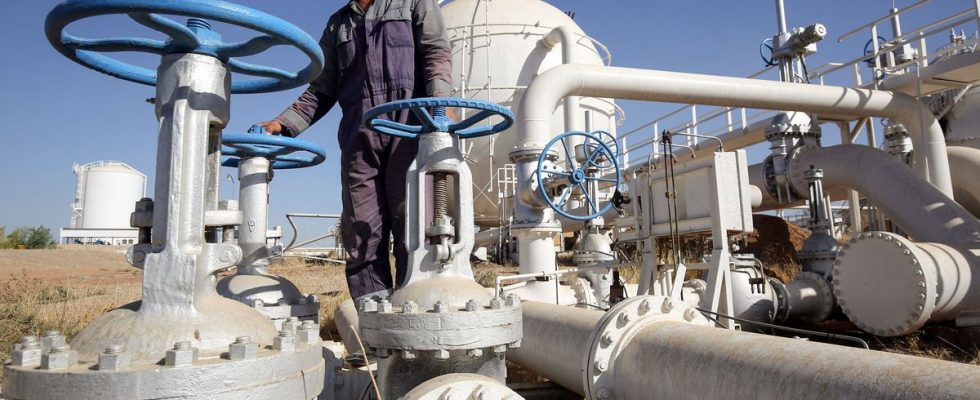For more than a month, oil exports from Kurdistan have been stopped. In the hope of getting its hands on this black gold, Iraq is waiting for a “final agreement” with Turkey. The Iraqi federal government had mentioned a resumption of exports as early as May 13. But the authorities of autonomous Kurdistan, in northern Iraq, then tempered this optimism.
“Kurdistan has fulfilled all its obligations (…) and is awaiting a final agreement between the federal government and the Turkish government for a resumption of oil exports”, underlined Sunday evening the Prime Minister of the autonomous region Masrour Barzani, in a press release. . After going it alone for years to export oil via Turkey, Iraqi Kurdistan had to comply at the end of March with a decision of the arbitration tribunal of the International Chamber of Commerce in Paris in favor of Baghdad regarding the management of this oil. .
Obligation to negotiate with Baghdad
This verdict has led to a suspension of exports since the end of March, forcing Erbil, the capital of autonomous Kurdistan, to negotiate with Baghdad: sales from Kurdistan will now go through the State Oil Company (Somo) and Kurdish export revenues will go to a bank account managed by Erbil but supervised by Baghdad.
The suspension of exports represents a shortfall of about “one billion dollars”, explained analyst Kovand Shirwani. For nearly a decade, black gold has been the economic lifeblood of Iraqi Kurdistan, with around 475,000 barrels exported daily via Turkey, without Baghdad’s approval. In early May, Iraqi Oil Minister Hayan Abdel-Ghani justified the delays in resuming exports by referring to “tests carried out on oil pipelines” in Turkey after the February earthquake.
A “fine” to be expected?
But financial questions remain unresolved: Baghdad is awaiting the payment of a “fine” by Ankara, Hayan Abdel-Ghani had then assured. Because a 1973 bilateral agreement regulating the use of oil pipelines set the fee paid to Turkey at $1.19 for each barrel of oil sent to the Turkish port of Ceyhan.
“However, Kurdistan paid much more than that” in right of way, said the minister, believing that “the difference must go to the Iraqi government”. This “fine” could exceed 1.8 billion dollars, said on condition of anonymity a senior official of the Iraqi Oil Ministry. Turkish Energy Minister Fatih Donmez, however, challenged the sums claimed by Baghdad at the end of March, according to the Turkish news agency Anadolu.

